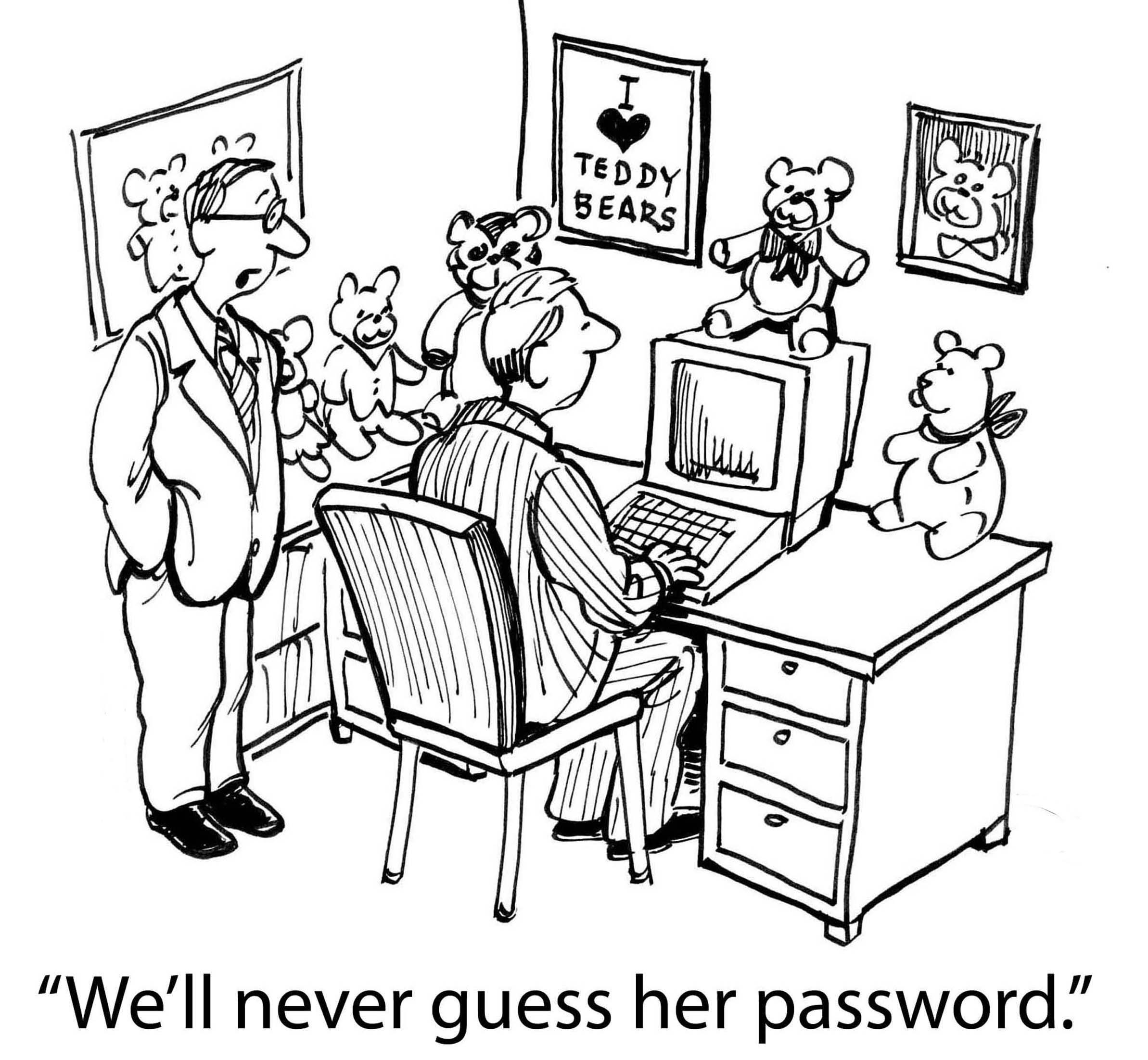Historically criminals donned balaclavas and sawn off shot guns, holding up a bank or mugging someone in the street. These days, why would they bother if they can rob you in the comfort of their own home or an office, with the couple of keystrokes or running a programme through your files ?
Most Cyber Crimes are the result of poor password hygiene, passwords or log ins are seen by many people as a thorn in their side. Having to put your password into multiple applications , multiple times can bring on “password fatigue”. Having to remember a different password for each system you log in to or having a code sent to your phone, is the reality of keeping your IT infrastructure secure.
We may be tempted to use the same password for each system we use. That is foolhardy . If a hacker gets in to one system, they will assume that you have used the same password for all of your other systems, including your personal accounts. The bad guys now have systems which can automatically try your username and password on all of the usual services in a fraction of a second.
It is a good idea to look at your digital data as your person possessions. You would not leave your front door wide open, keys in the ignition of your car, or wouldn’t walk along the street with your wallet or purse open. At least not deliberately. Why do the same with your digital footprint ?
Until you have been hacked it is very difficult to understand the fall out. It can be days or weeks before IT normality returns. The reality is you could be looking at a a barren horizon, no emails, or internet until it is resolved. This is coupled with the cost of remediation , and the task of reporting the incident to the ICO and having to inform your clients or customers.
Are there any tips for a good password ?
The good news is, most Cyber Crimes can be preventable just by taking a few simple steps every day. Here are a few password hygiene tips
- Stop using passwords and start using passphrases – A line of a song , or a phrase from a poem or book (with punctuation and capital letters), can be a good starting point for a good password. Alternatively look out of the window and describe what you can see. This should give you a password of at least 15 characters. Couple this with the following tips ……
- Substitute plenty of characters for letters – Substituting some characters for letters in your passphrase can help i.e. @ for an a , 3 for e etc. Include numbers in the passphrase as well.
- Change your passwords regularly – Don’t just add a 1 on the end though !!
- Use a different password for each website or system you login to – If your password is compromised you aren’t going to make it easy for the bad guys to access all of your accounts.
Is there an easier way ?
Alternatively you can use a password manager. A good password manager will generate a unique, random and strong password for all of your online accounts. Rather than storing these in a book , or on post it notes on your monitor ( please don’t do this ) , the passwords are stored in a encrypted digital vault that can be accessed from all of your authorised devices. When you access the websites the password manager will fill in the saved password for you. If you select the correct password manager this can completely eliminate your Password Fatigue.
If you would like some advice, Bespoke Systems have the expertise to guide you through protecting your IT infrastructure. We pride ourselves in our no nonsense, jargon free information, tailored to your companies cyber resilience. Contact Us Here





